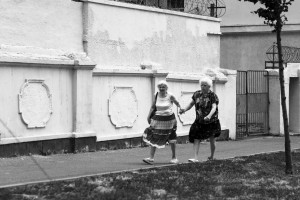 Master Z, a thousand years ago, would not have disagreed with this diagnosis, although being the behaviourist contrarian that he was, he would have probably broken into my case study with one of his pithy heckles or interventions.
Master Z, a thousand years ago, would not have disagreed with this diagnosis, although being the behaviourist contrarian that he was, he would have probably broken into my case study with one of his pithy heckles or interventions.
Perhaps he would have been more comfortable with my explanation had I laid out the notion of distress tolerance with reference to the 4 “truths”, noble or not, as I’ve already alluded to earlier, handed down orally from the time of the Buddha, truths he would have carried with him as foundational to his understanding of our inner world.. Four truths, which perhaps like me, after 25 years of practice, still find myself struggling to remember and embody, due to some form of unconscious repression, or a porous memory. So he too might have created a mnemonic to help him remember these truths.
My aide-de-memoire is PORT, which stands for Problem, Origin, Requirement, Treatment.
i. PROBLEM
For Zhaouzhou, that would be dukka: discomfort, distress, intolerance, the sting however it comes of our reality slap. This sanskrit word also has a literal connotation of ‘wrong’ or ‘bad’ space, and would have often been used in a very pragmatic way to refer to axle that is not centered in its wheel. A jarred, shaken and stirred, but not in a good way inner feeling, which fits well with what we could now call anxiety. Imagine that misaligned wheel on an ox-drawn cart bumping along over dirt roads. No wonder we get angry at whoever did the work on our wheels, or want to, dissociatively, get off the cart.
ii. ORIGIN
Moving onto the ORIGIN of the problem. We’d like to blame the ox-cart mechanic, but here Z (and big-B before him) went deeper. The origin of our suffering is not in fact the wagon-builder, or the wheel itself, but rather us wanting the wheel/situation/our lives to be otherwise. The reality gap, in other words, sits between how things are, and the way we’d like them to be. Do we surrender and accept that gap (in my experience, rarely), or do we attempt however we can -through anger, or other methods of coercion or manipulation- to make fantasy and reality align?
iii. REQUIREMENT
What is our REQUIREMENT in this state of dukka? Well, niroda (cessation) surely – or at the very least, we have the need to reduce or even extinguish our suffering entirely.
This might seem paradoxical in the model of distress tolerance being outlined here. Surely the whole point about tolerance is that you, well, tolerate stuff. Put up with it, endure, submit, bear with it. Maybe even pretend it’s not there, or distract yourself from the pain. Unfortunately, suffering has a life of its own, and just because one might cover a festering wound on one’s ankle with a sock and a boot and go out partying, doesn’t mean it continues to fester and make itself known to you in other ways.
iv. TREATMENT
Not a pain killer or some other analgesic. Not just a temporary adjustment for loneliness, sadness, worries and fear. The treatment I’m interested in here is for anger, activated in me so swiftly by my little guru Max and the daily helpings of Mu he provides. Like a good physician who gets one to yelp, and then protectively growl in pain, only so that he can then heal us.
What can we learn from dogs about anger and how to cope better with this unruly emotion? What can we learn from Zhaouzhou and others like him? What can we learn from our relatively new “science” of psychology, now roughly the same age as that venerable Zen master Z when he popped his clogs?
If I’m not going to be a mean, angry parent with a terrorised and emotionally abused child, I need to find a way of working with my Angry Hulk, a way of befriending him.
What are the options available to me?